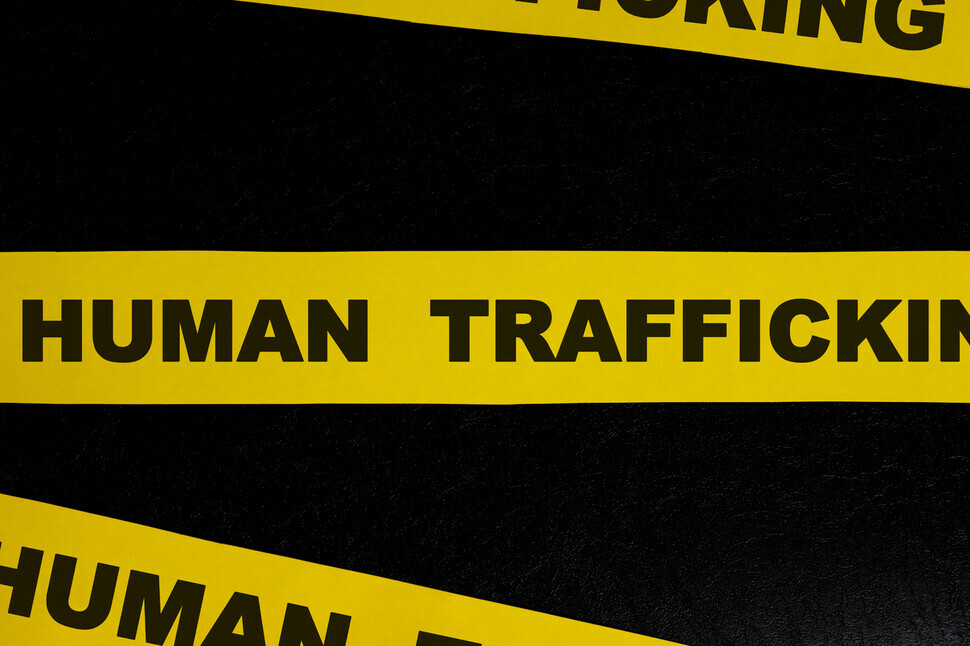hankyoreh
Links to other country sites 다른 나라 사이트 링크
Trafficked Filipino women file for retrial in Korea after UN weighs in on their arrest, deportation

The Hankyoreh confirmed Monday that three Filipino women who were forced into prostitution after initially coming to South Korea to work as singers have filed for a retrial as well as a damages lawsuit against the state, which ordered their detention and deportation.
The call for a retrial is based on an order by the UN Committee on the Elimination of Discrimination against Women, known as CEDAW, that the state offer compensation to trafficked women, since the state failed to properly protect them.
While claiming that the result of the trial on Dec. 26, 2023, was unjust as it failed to recognize the mental damages they received due to the government’s forced deportation and detention orders, the three Filipino women applied for a retrial against South Korea, who will be legally represented by the minister of justice.
The three women came to South Korea on arts and entertainment work visas, also known as E-6 visas, in 2014. However, they were forced into prostitution by the owner of the nightclub they worked at, and in March 2015 they were arrested during a police crackdown.
After being sent to the Seoul Immigration Office, they were detained there for 45 days, after which they received their deportation order.
At the time, they filed a series of administrative claims challenging their deportation order and seeking damages, claiming they were victims of human trafficking. However, they ultimately lost both lawsuits in 2018 and 2020 respectively.
The women were able to appeal for a retrial as CEDAW concluded in October 2023 that Korea had “failed to identify or protect [the three women] as the victims of trafficking,” and “did not guarantee the [complaint’s] authors’ access to justice and adequate remedies.”
CEDAW also recommended that the South Korean government provide full reparations to the harmed parties and strengthen the investigation and prosecution of human trafficking perpetrators.
This marked the first time that CEDAW has recommended full reparations and reforms to the judicial system to the South Korean government for violations of individuals’ rights.
South Korea will have to submit a written action plan to CEDAW before April delineating how it will implement the UN body’s recommendations. However, the Ministry of Justice wrote a written opinion on Jan. 31 that it “doubts the committee’s decision has any legal binding force or influence on the appeal for retrial.”
Kim Jong-chul, the attorney at Advocates for Public Interest Law who is representing the victims, called on Korea to carry out these recommendations.
“UN recommendations are ordered with the intention of seeing state parties implement the norms of UN international human rights,” Kim said. “The government should shoulder the responsibility for failing to analyze the multi-layered vulnerabilities (as women, as migrants, as those in poverty) of the victims.”
By Oh Se-jin, staff reporter
Please direct questions or comments to [english@hani.co.kr]

Editorial・opinion
![[Column] When ‘fairness’ means hate and violence [Column] When ‘fairness’ means hate and violence](https://flexible.img.hani.co.kr/flexible/normal/500/300/imgdb/original/2024/0516/7417158465908824.jpg) [Column] When ‘fairness’ means hate and violence
[Column] When ‘fairness’ means hate and violence![[Editorial] Yoon must stop abusing authority to shield himself from investigation [Editorial] Yoon must stop abusing authority to shield himself from investigation](https://flexible.img.hani.co.kr/flexible/normal/500/300/imgdb/original/2024/0516/4417158464854198.jpg) [Editorial] Yoon must stop abusing authority to shield himself from investigation
[Editorial] Yoon must stop abusing authority to shield himself from investigation- [Column] US troop withdrawal from Korea could be the Acheson Line all over
- [Column] How to win back readers who’ve turned to YouTube for news
- [Column] Welcome to the president’s pity party
- [Editorial] Korea must respond firmly to Japan’s attempt to usurp Line
- [Editorial] Transfers of prosecutors investigating Korea’s first lady send chilling message
- [Column] Will Seoul’s ties with Moscow really recover on their own?
- [Column] Samsung’s ‘lost decade’ and Lee Jae-yong’s mismatched chopsticks
- [Correspondent’s column] The real reason the US is worried about Chinese ‘overcapacity’
Most viewed articles
- 1Could Korea’s Naver lose control of Line to Japan?
- 2[Column] Welcome to the president’s pity party
- 3[Column] US troop withdrawal from Korea could be the Acheson Line all over
- 4Naver’s union calls for action from government over possible Japanese buyout of Line
- 5[Editorial] Korea must respond firmly to Japan’s attempt to usurp Line
- 6Korea cedes No. 1 spot in overall shipbuilding competitiveness to China
- 7[Editorial] Yoon must stop abusing authority to shield himself from investigation
- 8[Column] When ‘fairness’ means hate and violence
- 9Korean opposition decries Line affair as price of Yoon’s ‘degrading’ diplomacy toward Japan
- 10Second suspect nabbed for gruesome murder of Korean in Thailand, 1 remains at large